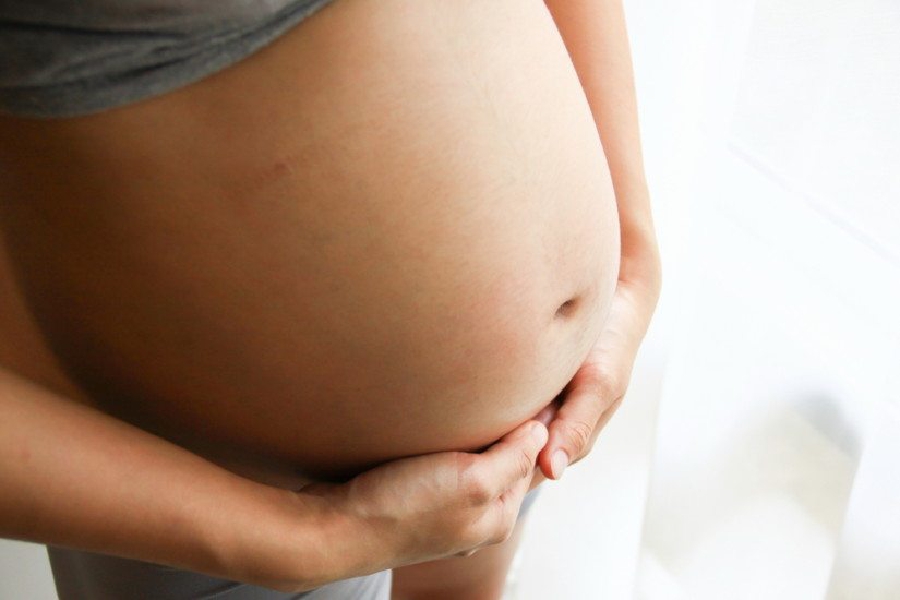- Study Says Most Parents Don’t Use Car Seats In Ride Share Vehicles Like Uber
- This 12-Year-Old Boy Is A Sophomore Aerospace Engineering Major!
- Fire Safety Experts Warn Of Hand Sanitizer Danger After A Mom and Kids Escape House Fire
- Recall Alert: Peaches May Be The Cause Of Salmonella Outbreak, 68 People Ill
- Summer Vacation In The Days Of COVID: Tips To Stay Safe
- How To Safely Grocery Shop During The Coronavirus Pandemic
- Michigan Teen With Vape-Related Illness Undergoes Double Lung Transplant
- Teen Kicks Off Anti-Vaping Campaign From Hospital Bed
- Teenager Receives Life Sentence For Strangling Sister To Death Over A Wi-Fi Password
- Toddler Falls To Death From 11th Deck of Cruise Ship
Mother Issues Devastating Warning After She Loses Her Baby To “Slapped Cheek Syndrome”


Slapped cheek syndrome is likely something that most of us haven’t even heard of before.
That’s probably because it’s a self-treatable virus which goes away on its own.
But for a UK Mom, Gemma Carlile, she learned the hard way of just how deadly slapped cheek syndrome can actually be.
Most woman try to stay as healthy as possible during their pregnancy. However, some things are difficult to avoid, no matter how hard you try.
There are so many diseases, viruses and illness going around and as hard as we try and avoid them at all costs, the inevitable takes place.
Gemma Carlile was 16 weeks & 5 days pregnant when doctors confirmed that she had contracted the slapped cheek syndrome from the daycare that she worked in.
Slapped cheek syndrome – which is a colloquial term for parvovirus B19, also called Fifths disease, from the daycare she worked at. It is quite common among children but pregnant women are also vulnerable to catching it.
After she was told that a blood transfusion in the womb was the only hope the baby boy would survive, a later scan revealed that Gemma had suffered a miscarriage.
Gemma chose to go through with the labor, and gave birth to her son Terence Arthur on March 28.
Slapped cheek syndrome is a childhood viral infection which produces a bright red rash on the cheeks (basically it looks like slapped cheeks).
Not all children with slapped cheek syndrome develop the rash.
Other symptoms usually include a headache and a soar throat. It can easily spread but is usually self-treatable.
But if you are pregnant, there’s a chance that you might miscarry, as Gemma has unfortunately experienced.
Gemma said: “At almost 18 weeks my baby had begun to show signs of fetal anemia which is caused by the virus. Due to already having a large hematoma in my uterus, I was re-scanned two days later which confirmed my boy was becoming rapidly more ill. It was confirmed the anemia was caused by the slapped cheek.”
Gemma decided to go through with the blood transfusion after doctors told her she would definitely lose the baby if they turned it down.
“This was scheduled for two days later as he was deteriorating so quickly, his heart was working so hard that if we didn’t agree to the transfusion we would lose him anyway,” she said.
When she went in for a scan 2 days later, she was given the heartbreaking news that her little baby boy had died.
Now, Gemma wants all schools to be made aware of the dangers of the virus and for blood tests to be offered to all pregnant women.
“I pushed him into the world, he was beautiful and perfect,” she said to the Mirror.
“We held him and kissed him, the pain and love I felt for my little boy is indescribable. We left the hospital with empty arms and an empty heart that day.”
A lot of people have commented on this story:
“I caught slapped cheek a few years from my children. They recovered quickly, I on the other hand ended up very ill with pneumonia. Such a horrible virus. My heart goes out to this family.” one person said.
Another person said, “I’m a pregnant teacher and my school have had several confirmed cases of slapped cheek. Luckily I’m immune but I only found this out after slapped cheek was confirmed in my school. Pregnant women should be tested for immunity at their first booking appointment to avoid tragedies like this occurring. It’s a simple change to NHS process.”
Have you ever had slapped cheek syndrome?









0 comments